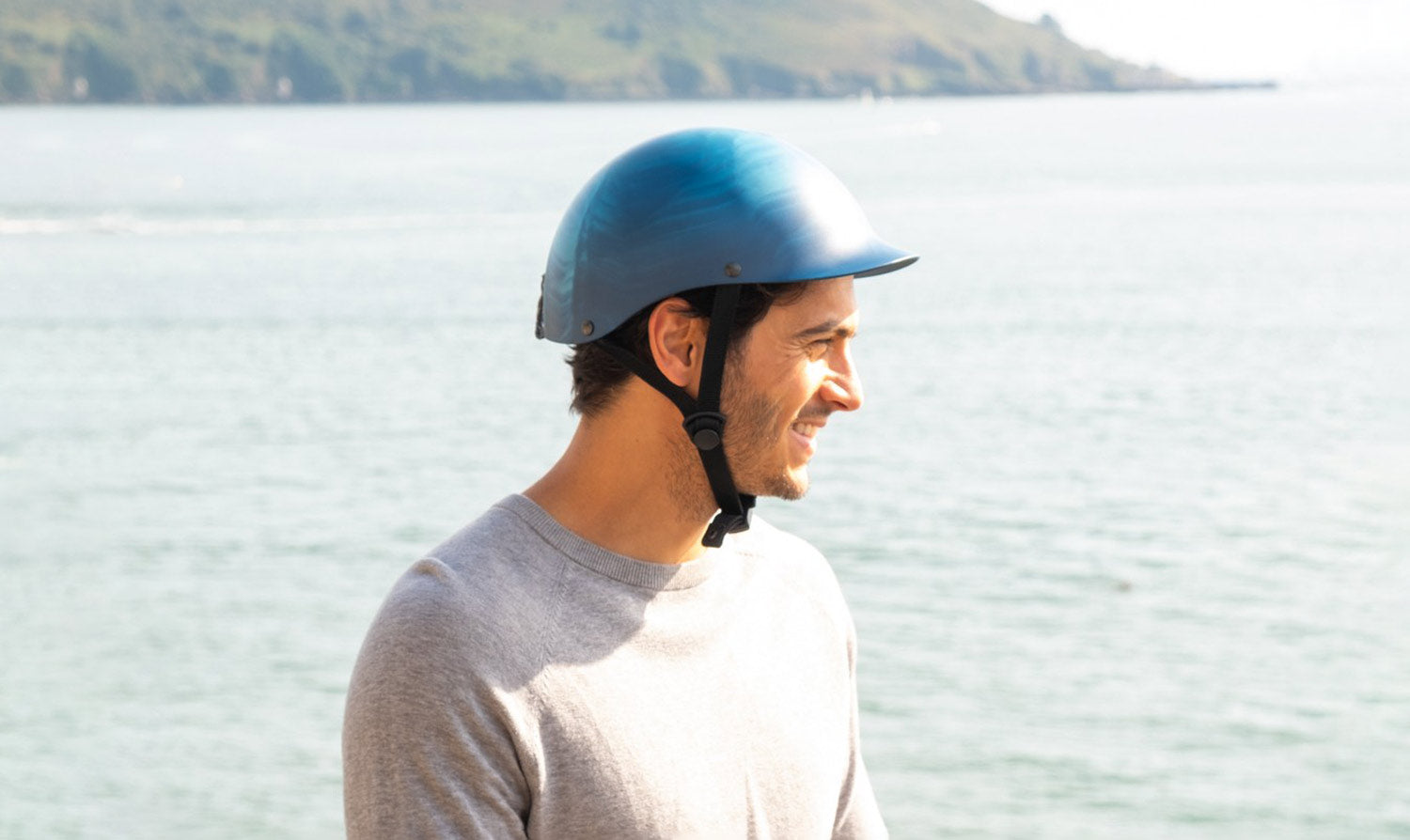Introducing the Ocean Edition

We need a circular economy that protects our planet.
So when tackling the issues of plastic pollution and ocean waste, we looked at how we could reduce our plastic waste even further at our UK factory in Plymouth.
During manufacture at our UK factory, imperfect colours and patterns are often created during changeovers in our machines. The plastic moulds that we use cannot immediately change from one colour to the next; there is always a 'blend' of colour swirls that happens in-between.
As the old colour is extruded, the next colour pushes through, giving the old colour a paler hue with subtle waves of colour. In addition, the first few of the new colour batch often have traces of the previous colour plus these wave-like lines. No two helmets are alike, and the finished 'design' cannot be predicted.
Due to their unusual appearance, these one-off, tie-dye effect shells cannot be sold to stores. Usually, these cosmetic seconds are immediately put back into the factory's recycling stream. But, we thought they were so striking and impressive; these helmets deserved their own place in our range.

Introducing The Ocean Edition Cycle Helmet
The Ocean Edition cycle helmets are the same in every other way - safety, quality and longevity - like Dashel's popular Recycle Helmets; the only difference is the uneven colour pattern reminiscent of waves on a beach.
The colours are random depending on the dispersion of colour in manufacture - no two helmets are ever alike. The helmets from our latest collection come in a range of blues, black and reds. And the ghost net loops from Bracenet come in a variety of different colours, depending on the net they have been made from.

The Ocean Edition helmet is delivered in a recyclable cardboard box and a reusable drawstring backpack made from 3.5 recycled PET bottles. Even the swing tag cable is biodegradable.
“It is always better to reuse than recycle, and this is what initially inspired the development of the Ocean Edition range. The ReCycle range is injection moulded in our Plymouth factory. When you buy a cycle helmet, in fact in any consumer product made from plastic, you may not realise that it may have taken many attempts to get the solid colour that ends up on a shop shelf. Many colour changes and effects will come through the production line. Sometimes there will be just a small mark or line. Either way these seconds go straight to recycling, or even to incineration in some nations; so are never seen by the customer. But we wonder, if given the choice, would customers purchase something with a minor cosmetic flaw if it meant saving tons of carbon over a year? We’d like to start that conversation and in turn help factories to work more profitably and reduce waste.” —Catherine Bedford, Dashel’s Founder.
Bracenet: Ghost Fishing Net Recycling
Combining our dedication to recycling and reducing plastic waste, we have collaborated with a company that shares our sustainable production values: ghost-net recycling company Bracenet.
Bracenet retrieves discarded fishnets from oceans worldwide and gives them a new life, upcycling them into useful accessories and more. They aim to promote the danger to marine wildlife from waste ghost nets and work globally to remove plastic from oceans.
To ensure our Ocean Edition helmet is as sustainable as possible, the loop at the back has been replaced with one made from Bracenet's recycled ghost net.
This means for every helmet purchased, there is less plastic in our seas.

In addition to purchasing the loops from Bracenet, which helps fund their clean-up operations, Dashel is donating 10% of the sales price of each helmet to support valuable marine conservation work and remove ocean plastic. This is divided between two great charities: 5% of each sale goes to Healthy Seas and 5% to the Seabin Project.
The collaboration is part of Dashel's aim to combat plastic waste and promote global sustainability.



